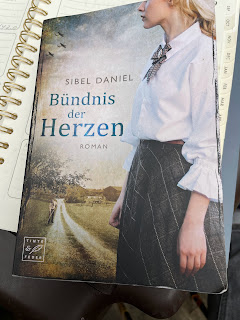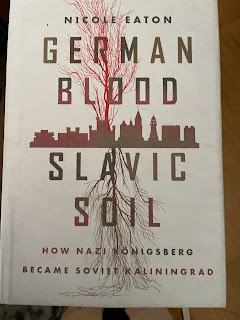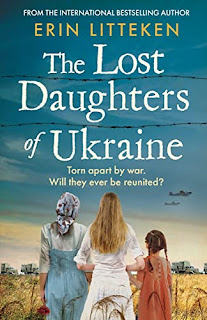I’m grateful not to have completely lost my German language skills because I thoroughly enjoyed reading Sibel Daniel’s, 2020 release, Bündnis der Herzen, from Tinte & Feder, a German imprint belonging to Amazon (parallels Amazon's English language imprint, Lake Union Publishing). Not sure why, but I find reading in another language makes me pay more attention to writing style. Perhaps simply because I’m more focused on the language itself.
Daniel’s crisp, fluid writing brings life to a world war that refuses to be forgotten. With compelling sensory details, she tells an old story with a fresh voice which invites the reader to use all their senses … to inhale the same air, hear the same sounds, taste the same food as the characters. Here’s an example from page 410, “Der Duft der Gans scheint aus der Vergangenheit herüber in die Gegenwart zu wehen.“ Who hasn’t experienced the power of smell to evoke memories?
Multi-point-of-view transitions are deft and seamless. The three main female characters come from different stages of life … the child, the teenager, and the mother. The male characters also span a wide range of ages and backgrounds … all with conflicting interests, all strongly affected by a war beyond their control. Greed, lust, fear, altruism, patriotism and, of course, romance, are all explored through the interactions of the diverse characters.
The novel’s set mostly in a small farming village in the Black Forest area of Germany near the end of the war. The forced labourers, recruited from nearby occupied France, live and work in close proximity to the German women and children. The story focuses on a romance between a young German woman, Klara (or Claire, for the French) and Gilbert, a French spy, posing as a forced labourer.
While a tad on the long side, I found the novel completely captivating and needed to grab a tissue to wipe away tears near the poignant end. As in earlier books I read this summer, focused on Ukrainian war history, here too the author bridges the present to the past with a multi-generational epilogue. It’s been close to 80 years now, but storm damage from the Second World War continues to resound in our lives.










